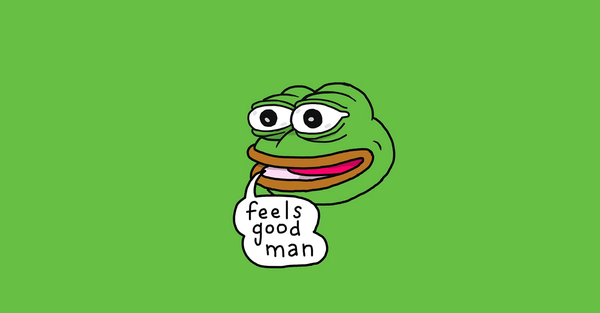That's just like uh, your opinion man
I grew up in a family that watched the news. They would turn on the Tv early in the mornings to learn about the weather, how much traffic to expect on their commute, some sports, and some light hearted story about people saving baby turtles. In the evenings they would watch the juicer stories like crimes that were committed, politics, sports, and some weather again.
My grandfather from my father's side watched the news as well, but he also read the newspaper. He read two different newspapers: El Vocero and El Nuevo Dia. When I was a teenager living with him and my grandmother, I immediately thought newspapers were the coolest thing. I loved the smell of the pages and getting the black ink on my fingers. I had already developed a taste for reading books ever since I could remember, but I think newspapers were the catalyst in becoming aware that watching televised news everyday was the worst way to stay informed.
It's almost impossible to report a piece of news objectively in a visual way. For example a crime report on a newspaper is supposed to be just a few paragraphs that answer the who, what, where, when, and why questions, some quote from a police officer, and maybe another quote from the family of the victim(s). But that's it. Something bad happened somewhere, maybe close to where you live. If you do live close to where that happened maybe you avoid being there at night. If you don't live close by, you probably move on with your life.
More complicated pieces of reporting like politics, while they can be shaped and presented with some bias, also have to follow the same rules. They still have to answer the same who, what, where, when, and why questions. A senator says something about another senator that relates to some bill about taxing baby food for turtles. One of the senators believes in raising the taxes for the baby turtle food, the other believes in lowering them. If this piece of news is reported on television, it will muddy up the answers to the who, what, where, when, why questions and it will emphasize on some soundbite. Some dumb thing one of the senator says. The more scandalous the thing that was said, the more they keep the viewer watching ads.
My argument here is not just that reading news is better than watching news to stay informed, which I do believe to be true, but to give a brief summary on what journalism is supposed to be about. Following breaking news everyday, bet it written or recorded on video, will not keep you informed. It will just keep you alarmed.
I started with my anecdote about newspapers vs televised news because most people from my generation had a better understanding on what journalism was, even if they preferred just watching the news. You didn't need to have a Communications degree to understand the basics on how news reporting and investigative journalism work. People had a better intuition on what were facts vs what was opinion.
In contrast, today people are super confused about what to believe and what to think. The whole "fake news" rhetoric instigated by the orange man has really hurt the legitimacy of journalism and I find it super alarming when young people say that the NyTimes is as bad as what they get from Instagram Reels.
I've had some conversations with some peers my age, but particularly with some people in their 20's that get their news exclusively, if you can even call that news, from social media. The usual suspects here being Facebook, Instagram, and TikTok. I try to present them with the argument that what their getting is opinions of news, ai slop, and actual fake news. I try to explain to them that they to find real journalists doing actual reporting of facts. I always recommend the NyTimes, because that's what I've known for years, and I understand that there's some issues like the normalizing of Trump, but remember we're trying to get them from getting their political news from TikTok influencers to reading from professional journalists, that can get sued for libel if they don't fact check the who, what, where, when, why questions.
To circle back to reading newspapers, the reason why reading investigative reporting and informed opinions is better than getting it from your Tv News and your Facebook wall is because it strips away the emotional charge. You get to slow down and see the facts up front. The facts are not buried by the TikTok influencer, or the Tv talking head and you get to decide if this is actually something that matters to you, that makes a difference in your life, and if it's actually informing you, or just something that's just keeping you in a spiral of outrage.



